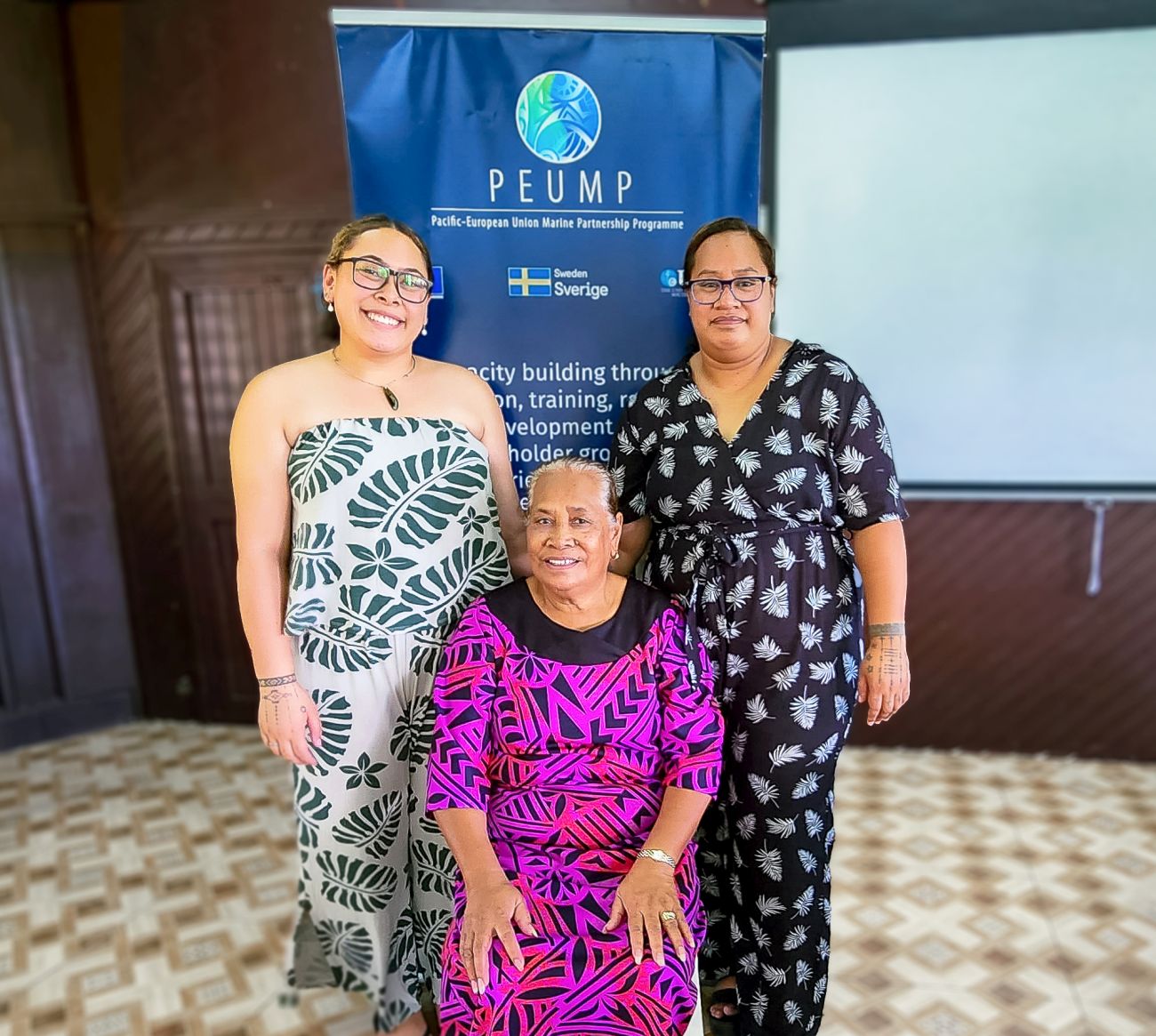


Situated in the heart of Samoa, where the vivid culture intersects with the vast blue Pacific Ocean, the Poalaga family has etched their mark in Samoa’s fishing sector.
Over the course of three generations, the Poalaga women have assumed the role of custodians for a flourishing fishing enterprise for over a decade. After 13 years of operation, their venture will grow to new heights after they complete their micro-qualification training programme, focusing on establishing and operating small-scale seafood businesses.
Their venture was born from a dream of Asovalu Poalaga’s longing to return home and establish a fishing enterprise after spending over three decades in New Zealand with her husband.
In 2010, they bought their first boat and enlisted the help of Asovalu’s brothers-in-law and two nephews as fishermen. Thus began their journey as deep-sea fishers, selling their catch at the local market.
The 65-year-old matriarch’s enterprise flourished over the years, evolving from a market-based operation to a supplier for hotels and local and Chinese restaurants.
“What once started with a single boat and three crew members had expanded into a fleet of four boats manned by twelve skilled fishermen.”
Asovalu’s vision sustained their family and became an integral part of Samoa’s thriving fishing industry.
This year, The University of the South Pacific Pacific (USP) – European Union Marine Partnership (PEUMP) project funded by the European Union and the Government of Sweden provided a pivotal initiative to enhance the economic and social aspects of fishing in Samoa.
Asovalu and her daughter, Lolofi, and granddaughter, Maniya, eagerly seized the opportunity to attend the micro-qualification training on establishing and operating a small seafood business.
The three described their educational journey as a transformative experience, but for Asovalu, it was a chance to impart her wisdom to the younger generations.
Lolofi, at 38, gained a new perspective, realising that the business could transcend its current bounds, and Maniya, at 20, started with no prior business knowledge but left with newfound skills and ambitions.
Expressing her gratitude, Asovalu shared, “I am happy to be part of this training and to involve my daughter and granddaughter.”
“I am getting old now, and I need them to help me in this business, especially to improve and expand the business.”
“Opportunities provided by USP to upskill our Pacific people and boost business and enterprises relevant to our region’s development.”
Lolofi echoed her mother’s sentiments, adding, “I have learned so much from this training, and it has opened my eyes. Our initial goal was to sustain and support the family, but now I see the potential for growth and expansion.”
The youngest of the trio, Maniya, was equally enthusiastic and happy at the prospect of contributing to the growth and expansion of the family business.
“I started this training with no knowledge of businesses. But now I have learned so much, and I look forward to helping my mom and grandma in the business and starting my own.”
As the Poalaga family sails into the future, armed with newfound knowledge and a passion for their craft, they are not just fishers; they are pioneers shaping the seascape of Samoa’s fishing industry for generations to come.
The success of their small seafood business reflects not only economic prosperity but also the resilience and determination of a family deeply connected to the ocean that sustains them.
